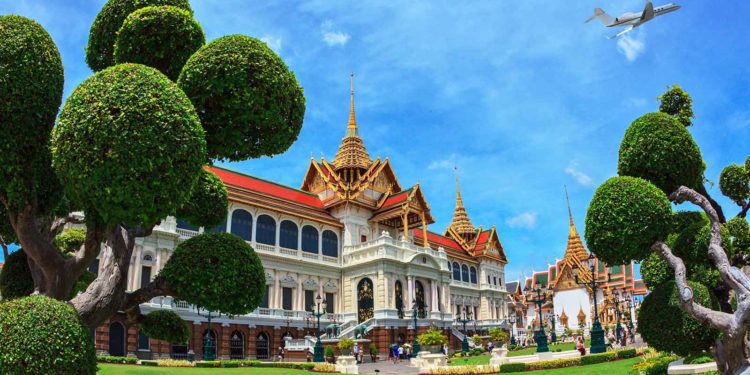Bangkok – Which Airport to Pick: Part 2 – CIQ and Security

This business aviation blog post continues from our article last week, titled “Bangkok – Which Airport to Pick: Part 1 – Landing Options.”
Pre-planning is a key consideration when traveling to Thailand and the Bangkok region, and at least two weeks forward planning is recommended for general aviation (GA) operations.
The following is an overview of what you need to know:
1. Thailand overflight and landing permit requirements
Landing and overflight permits are required for all operations – both private non-revenue and charter (non-schedule commercial) – to Thailand. Official permit lead time is seven business days. When requesting a landing permit you’ll need to provide complete crew/passenger details, operator information, full schedule and purpose of flight (not just a generic “business flight”). Note that you’ll also need to provide a local business contact – with full name, contact information and the person’s position with the company – before your permit will be processed. Landing permits are valid -/+ 24 hours. At least 24 hours notification is appropriate for permit revisions. Be aware that schedule changes – outside the 24 hour validity period – require permit revisions as well as new airport slots. Other revisions such as routing and manifest changes could potentially result in the issuance of a new permit. It’s recommended that any such changes be submitted as soon as known for permit revisions.
2. Customs, immigration, and quarantine (CIQ) procedures
CIQ clearance at Don Muang (VTBD) is accomplished within the VIP terminal. At Suvarnabhumi (VTBS) passengers/crew clear CIQ in the main terminal – along with commercial passengers –, and this process takes a little longer. CIQ clearance cannot be accomplished at or near the aircraft at either Bangkok airport. Passengers/crew must have at least six months remaining validity on their passports to enter Thailand. Visas and arrival/departure cards are required on arrival and gen decs must be available. Your ground handler will assist with filling out paperwork prior to your arrival – as long as passenger/crew information has been forwarded in advance. While visas on arrival are possible for many nationalities, there are some nationalities that require visas prior to arrival. Particularly if you’re planning on a longer stay in Thailand – more than about 15 days – it’s best to obtain Thai visas prior to arrival. While there are no government fees/charges associated with CIQ clearance your ground handler may charge a service fee to assist with this process. Ground handlers will also arrange for your outbound CIQ clearance.
3. CIQ tips
Your ground handler will communicate with CIQ authorities and make all appropriate arrangements for your arrival. On day of operation your ground handler will update CIQ authorities if there’s any change to the planned estimated time of arrival. For Thailand, there’s a limit of one liter of alcohol, and 250 grams of cigars or tobacco, per arriving passenger/crew. There are also limitations on amounts of cash you may bring into the country. In Thailand it’s often allowable to offload in-flight catering, for storage at the airport, but certain food items are restricted. It’s best to confirm these restrictions with your ground handler in advance. Also, be aware that if you’re arriving in Thailand with pets or weapons onboard additional lead time is necessary in order to coordinate local arrangements. Note that if passengers desire to reclaim value added taxes (VAT) at VTBD, additional lead time is suggested in order to notify customs of the request.
4. Cabotage is taken seriously in Thailand
Thailand is very strict when it comes to cabotage – for both private non-revenue and charter operations within country. The same passengers that arrive in Thailand onboard your aircraft must also depart the country on your aircraft. If your schedule indicates more or less passengers on departure, special permission will be required from Thailand Civil Aviation Authority, and it will be at their discretion to approve or deny this.
And one more thing…
When operating to Thailand it’s also important to be aware of local cultural norms. For example, it is imperative that no action is done which may be considered disrespectful to the King or the King’s image.
Questions?
If you have any questions about this article or would like assistance planning your next trip to Bangkok, contact me at angeladavis@univ-wea.com.




